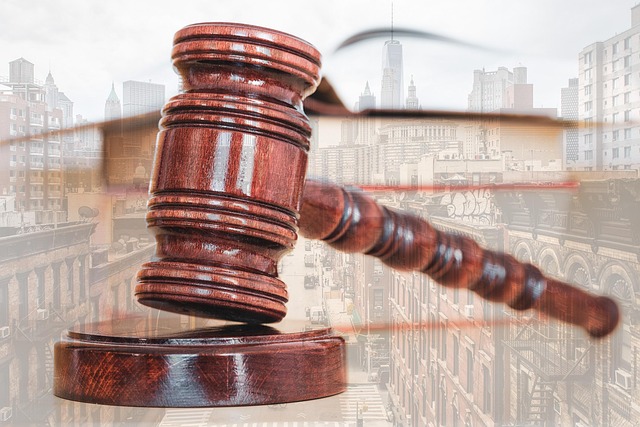Startups in competitive markets face significant challenges from financial fraud and stringent Competition Law Compliance. Weak digital security and human psychology often facilitate common scams like identity theft and investment fraud. To mitigate risks, startups must implement robust internal controls, including strong data encryption, regular financial audits, and clear policies. Advanced analytics tools are crucial for detecting fraudulent patterns while machine learning algorithms analyze large datasets quickly. Fostering a culture of ethical business practices through transparency builds trust with stakeholders, enhances reputation, and prevents costly legal issues related to Competition Law Compliance.
In the digital age, financial fraud has evolved into a complex web, demanding innovative strategies for detection. This article navigates the intricate landscape of financial fraud, providing insights into its diverse types and vectors. We explore the regulatory environment, focusing on Competition Law and its significance for startup compliance. Key areas covered include implementing robust internal controls, leveraging advanced analytics, fostering ethical practices, and ensuring transparency—essential elements in safeguarding startups’ financial integrity while adhering to Competition Law requirements.
- Understanding Financial Fraud: Types and Common Vectors
- Regulatory Landscape: Competition Law and Its Relevance to Startups
- Implementing Strong Internal Controls for Startup Compliance
- Advanced Analytical Techniques for Fraud Detection
- Building a Culture of Ethical Business Practices and Transparency
Understanding Financial Fraud: Types and Common Vectors
Financial fraud is a complex and ever-evolving challenge for businesses worldwide. Understanding its various forms is crucial for effective prevention and detection, especially in competitive markets where startups must adhere to stringent Competition Law Compliance. Common types include identity theft, where criminals impersonate individuals to gain access to sensitive financial information; investment scams, which lure investors with false promises of high returns; and accounting fraud, involving manipulated financial statements to mislead stakeholders.
These fraudulent activities often exploit weak points in digital security systems and human psychology. With the rise of remote work and digital transactions, vectors for fraud have expanded, making it more critical than ever for startups to implement robust security measures. Avoiding indictment in high-stakes cases is not just about compliance; it’s a strategic necessity to protect the startup’s reputation, prevent costly jury trials, and ensure long-term sustainability in an increasingly competitive landscape.
Regulatory Landscape: Competition Law and Its Relevance to Startups
The regulatory landscape for startups is a complex terrain, particularly when it comes to Competition Law Compliance. As businesses innovate and disrupt traditional markets, they must navigate stringent regulations to ensure fair competition. Startups, often with limited resources, face unique challenges in adhering to these laws, especially when competing against established companies. Understanding the nuances of competition law is crucial for their long-term success and survival.
Compliance with Competition Law goes beyond avoiding penalties; it fosters a robust and healthy business environment. By ensuring fair practices, startups can build trust with consumers and investors alike. An unprecedented track record of winning challenging defense verdicts demonstrates a startup’s commitment to ethical operations. Moreover, navigating these regulations allows startups to engage positively with the philanthropic and political communities, contributing to a sustainable and transparent business ecosystem.
Implementing Strong Internal Controls for Startup Compliance
Implementing robust internal controls is a cornerstone for startups aiming to navigate the complex landscape of competition law compliance. As businesses grow and expand their operations, they become more susceptible to financial fraud, which can have severe legal implications, especially in high-stakes cases across the country. Therefore, proactive measures are essential to mitigate risks from the outset.
Startups must establish clear policies and procedures that define roles, responsibilities, and data access permissions to ensure secure financial management. Regular audits and monitoring of financial transactions, along with robust data encryption and security protocols, create a solid defense against fraudulent activities. By adopting these controls, startups can demonstrate their commitment to ethical practices, thereby enhancing their reputation in the market and positioning themselves better to withstand scrutiny under competition law.
Advanced Analytical Techniques for Fraud Detection
In the competitive landscape of today’s financial markets, startups must adhere to stringent Competition Law Compliance regulations while safeguarding against intricate financial frauds. Advanced analytical techniques play a pivotal role in this dual challenge. Machine learning algorithms and data mining tools are increasingly being leveraged to detect anomalies and patterns indicative of fraudulent activities, such as money laundering or insider trading. These cutting-edge methods analyze vast datasets at speeds unmatched by traditional methods, enabling startups to stay ahead of potential fraudsters.
By integrating these advanced analytics into their risk management strategies, startups can not only ensure Competition Law Compliance but also fortify their defenses against general criminal defense issues. This proactive approach helps in avoiding indictment and maintains the integrity of corporate and individual clients’ financial records. Moreover, the insights derived from data-driven fraud detection allow for better decision-making, improved customer relationships, and a competitive edge in the market.
Building a Culture of Ethical Business Practices and Transparency
Building a strong culture of ethical business practices is pivotal for startups aiming to stay ahead in the competitive market while adhering to Competition Law Compliance. Transparency breeds trust among stakeholders, including investors, partners, and customers. Startups should prioritize open communication, ensuring every employee understands their role in maintaining integrity and reporting potential unethical behaviors. Regular training sessions on compliance, data privacy, and security can empower employees to recognize and prevent financial fraud, white-collar crimes, and other economic offenses.
By fostering a transparent environment, startups can mitigate risks of legal consequences, including costly jury trials, that may arise from ethical lapses. Leadership should set an example by demonstrating commitment to integrity through actions. This includes implementing robust internal controls, conducting regular audits, and establishing clear policies on financial transactions and data handling. Such proactive measures not only safeguard against potential indictments but also enhance the startup’s reputation as a responsible corporate citizen.
Financial fraud is a complex challenge, especially in today’s digital landscape. However, by understanding the various types and vectors of fraud, startups can navigate the competitive market while adhering to regulatory guidelines like Competition Law. Implementing robust internal controls, leveraging advanced analytics, and fostering ethical business practices are key strategies for detection and prevention. These measures not only ensure Compliance for Startups but also contribute to a transparent and resilient business environment. Through a multi-faceted approach, companies can safeguard their operations and protect their stakeholders from fraudulent activities.






